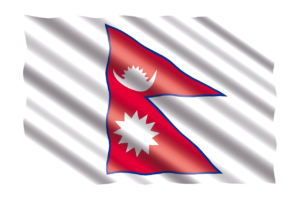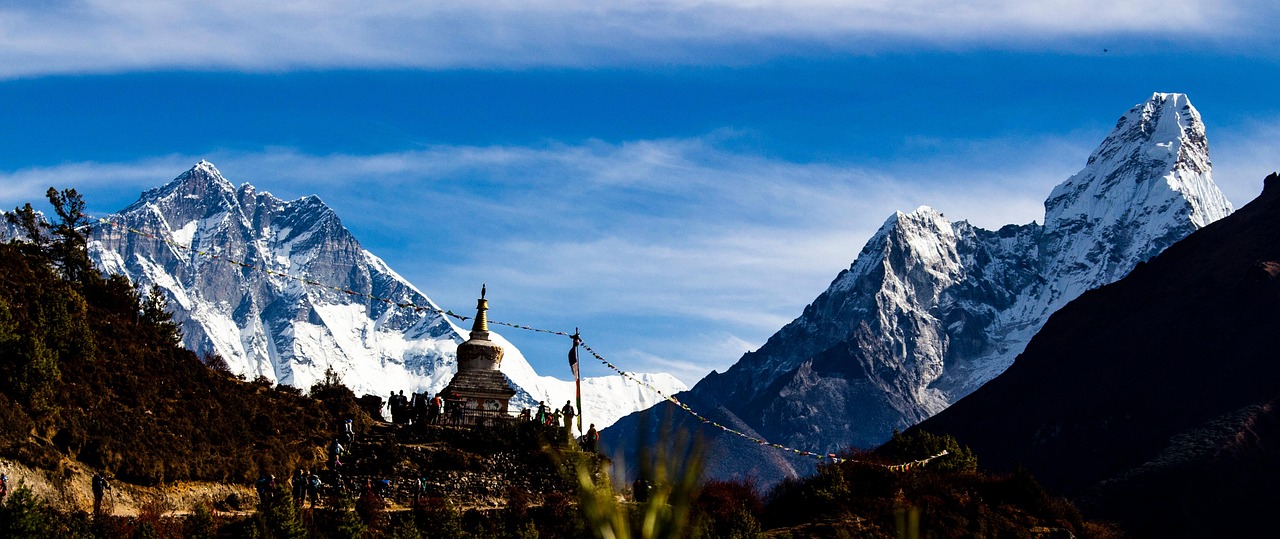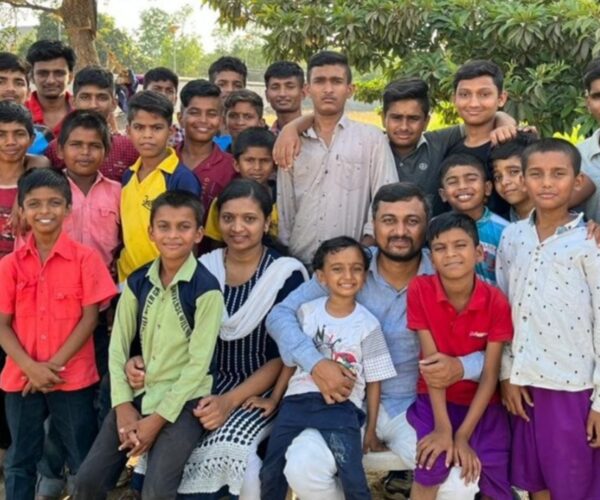By Onkareshwar Pandey
Sushila Karki’s appointment as Nepal’s interim Prime Minister is not the end of the revolution; it is the beginning of a new, more complex battle. The streets are still stained with the blood of 31 martyrs, including Muslim youths like Salim Khan from Rautahat
Now, Gen Z has escalated its demands from merely changing the government to changing the very system. A new war cry is echoing across Kathmandu: “We don’t want this Westminster-style constitution that protects corruption!” They are demanding a complete constitutional overhaul. This puts the honest and respected former Chief Justice in an unprecedented bind. She has been appointed to restore order within the system, but the generation that brought her to power now wants her to dismantle that very system. This is her ultimate trial by fire, where she must choose between being a constitutional caretaker or a revolutionary catalyst.
From Protest to Power Vacuum
What began as a backlash against the September 4 social media ban has evolved into a full-blown revolution. The ban, which targeted 26 platforms including Facebook, Instagram, YouTube, WhatsApp, and X, severed digital lifelines for millions and gutted 80% of Nepal’s internet traffic. But the outrage ran deeper—fueled by years of youth unemployment, dynastic corruption, and digital repression.
By September 8, Kathmandu was ablaze. Parliament was breached, ministers’ homes torched, and over 13,000 prisoners escaped amid the chaos. The death toll has now crossed 51, with more than 1,000 injured. Oli’s resignation on September 10 marked the collapse of the old guard, but it also triggered a constitutional dilemma: who would lead the transition?
Gen Z’s Four Unnegotiable Demands:
The youth have laid down a charter of demands, on which no compromise seems possible. Karki’s success or failure hinges on these four pillars:
Complete Constitutional Reform: This is the most radical demand. The protestors argue that the current parliamentary system, with its party whips and backroom deals, is designed to shield the corrupt. They are demanding a new constituent assembly or a referendum to create a system with stronger checks and balances, possibly a more presidential form of government with direct accountability.
Guaranteed Digital Freedom: The immediate and unconditional repeal of the draconian ‘Social Media Bill 2081’. They demand a new law drafted in consultation with civil society that guarantees absolute freedom of expression.
Strike on Corruption and Nepotism: The formation of a high-powered, independent commission to investigate scams and the disproportionate assets of the political elite and their families (“Nepo Kids”).
Merit Over Patronage (End of Bhag-Banda): An end to the culture of political quota-sharing in all public appointments, from government jobs to universities, ensuring a merit-based system.
Viral Post on Social Media
Meanwhile, a viral post blaming Nepal’s protests on Gen Z’s anger over a “snatched toy” is a dangerous fallacy that ignores the movement’s true cause. The uprising was not about social media entertainment but a final stand against decades of systemic corruption, crippling unemployment, and a political class that governs through nepotism and suppression. The proposed “Digital Sovereign Act” was the spark, not because it took a “toy,” but because it was a direct assault on one of the last remaining spaces for free speech and dissent, weaponized against a generation with no future left to lose.
The Regional Powder Keg: A Trail of Toppled Regimes
Nepal’s firestorm is a chilling echo of its neighbors, where youth rage has already toppled giants. In Sri Lanka, the 2022 Aragalaya was a gut punch to the dynastic Rajapaksa clan. After their corrupt policies and reckless tax cuts bled the country dry—leaving citizens in endless queues for fuel, food, and power—a generation raised on social media took to the streets. The hashtag #GoHomeGota became a war cry as protesters stormed the presidential palace, forcing Gotabaya Rajapaksa to flee the country and his brother Mahinda to resign in disgrace. It was a stark lesson: when you steal a generation’s future, they will come for your house.
More recently, Indonesia’s August 2025 Peringatan Darurat (State of Emergency Warning) saw Gen Z and gig workers hurl Molotov cocktails at parliament. The fury was directed at President Jokowi’s blatant dynastic power grab—installing his son as Vice President through a shady constitutional tweak—while pushing austerity on the public and granting lavish perks to lawmakers. With at least 10 dead and over 1,000 injured, the hashtag #DarkIndonesia became a symbol of a youth betrayed, proving that even in a burgeoning economy, nepotism is a firestarter. These weren’t protests; they were verdicts delivered on the street against leaders who believed they were above accountability.
Bangladesh’s Mirror: The Closest Cautionary Tale
But it was Bangladesh’s 2024 meltdown that served as Nepal’s most direct warning. Sheikh Hasina’s regime used the 2018 Digital Security Act (DSA) as a sledgehammer to crush dissent, jailing over a thousand journalists, activists, and students for “anti-state” posts or “offending” religious sentiments—vague clauses that weaponized the law. When the government tried to enforce a job quota system rigged for cronies, it lit the final fuse. Students, already seething under digital tyranny and economic despair, stormed Dhaka, torched government buildings, and forced Hasina to flee the country in August, leaving her Awami League in ruins. Nepal’s youth, who had cheered Dhaka’s rebels online just a year earlier, saw their own script being written.
The “Nepo Kids” Empire: Youth Spit Fire at Elite Thieves
At its core, this rebellion was a visceral rejection of Nepal’s “Nepo Kids”—the dynastic heirs who flaunt their inherited wealth and power while 19% of the nation’s youth languish without jobs. For a country where remittances from migrant workers make up a staggering 33% of the GDP ($11 billion), the social media ban wasn’t just censorship; it was an attack on the economic lifeline of millions. It was seen as a desperate attempt by the elite to shield themselves from accountability.
This pattern is replicated across South Asia. In Sri Lanka, youth ousted a president over economic collapse and corruption, not a social media ban. In Indonesia and Bangladesh, massive protests have consistently centered on demands for economic justice, job reforms, and civil liberties—not entertainment. To dismiss these movements as childish tantrums is to deliberately misread a regional cry for accountable governance and a desperate fight for a viable future.
The Immense Challenges Facing Karki:
Justice Karki’s integrity is her shield, but she is up against a fortress of vested interests. The first woman prime minister of Nepal Sushila Karki earned a reputation for her strong stance against corruption and commitment to judicial independence. She also has an India connection as she studied law at the Banaras Hindu University in Varanasi. She also met her future husband, Durga Prasad Subedi, during her study in India. Subedi was once part of a plane hijacking over fifty years ago. Subedi, then a youth leader of the Nepali Congress, led the plane hijack along with two others on June 10, 1973.
The Political ‘Deep State’: The old political parties allowed her appointment as a compromise, but they will never agree to a constitutional rewrite that renders them powerless. The bureaucracy and security forces are filled with their loyalists who will sabotage any radical reform from within. Pressure from the Streets: Gen Z is watching her every move. They rejected her once in favor of Kulman Ghising. If she is seen as merely a puppet of the old parties, meant to delay and diffuse the movement, the protests will reignite with unstoppable fury.
The “Godi Media” Counter-offensive:
The pro-establishment media, which was a target of the protestors’ anger, will now work overtime to portray the demand for constitutional change as anarchic and dangerous. They will try to create a narrative that Karki is being held hostage by radical elements, aiming to erode her public support. A Shattered Economy: With the monumental task of constitutional reform on the table, restoring investor confidence and rebooting the tourism-dependent economy becomes an even more Herculean task.
(Onkareshwar Pandey, a veteran journalist is Professor of Practice at CIDC and Executive Fellow at Woxsen University and an accomplished thought leader with over 35 years of diverse experience across multiple sectors.)



